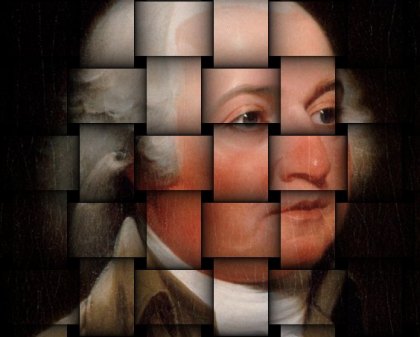Quick Study: The complicated John Adams

And as the second U.S. president, he is known for a monumental blunder – the Alien and Sedition Acts. Here are fast facts about a great, but complicated, man:
Born: Oct. 30, 1735, in Braintree, now Quincy, Massachusetts.
Career:
A graduate of Harvard, Adams was admitted to the bar in 1758, according to William A. DeGregorio in The Complete Book of U.S. Presidents (Barricade Books; 1993). As a lawyer, he represented John Hancock, later president of the Continental Congress, who had been charged with smuggling, recounts the Boston Tea Party Historical Society website. (Adams managed to get Hancock off the hook.)Colonists protested the English policy of taxation without representation, and in 1768, the British occupied Boston in an attempt to enforce the tax laws. Adams was critical of the occupation; even so, he believed in justice. He represented British soldiers charged with murder in connection with the Boston Massacre, March 5, 1770. (Seven were acquitted; two others were convicted of manslaughter and sentenced to have the letter “M” branded on their thumbs.)
After serving as a member of the Massachusetts legislature from 1770 to '74, he was elected as a delegate to the Continental Congress. From the beginning, Adams sought to include the Southern colonies in the rebellion and nominated George Washington to be commander and chief of the Continental Army. While Thomas Jefferson wrote the Declaration of Independence, Adams famously argued for it and served on the committee that drafted it. (Only two presidents signed the Declaration of Independence: Thomas Jefferson and Adams.)
During the Revolutionary War, Adams also served as diplomat, successfully persuading Dutch bankers to loan the Americans money.
As vice president: In its biography of Adams, The White House Historical Society recounts that Adams had this to say about becoming vice president: "My country has in its wisdom contrived for me the most insignificant office that ever the invention of man contrived or his imagination conceived."
But he served Washington as vice president for eight years. The vice president is also president of the Senate, a role Adams took seriously. He cast 29 tie-breaking votes, “a record that no successor has ever threatened,” according to the U.S. Senate article, John Adams, 1st Vice President (1789-1797). After serving as vice president during Washington’s presidency, Adams was elected president, defeating Jefferson.
In his book, John Adams, the historian David McCullough describes these laws as “the most reprehensible acts of his presidency.”
War with France was avoided, but the fallout, in combination with increasing tension between political parties, led to Adams' defeat in his bid for re-election.
Personal:
Marriage: In 1764, Adams, 28, married Abigail Smith, 19 – forming a marriage and partnership that still stands apart in American politics. After they married, “the bridal couple mounted a single horse and rode off to their new home,” DeGregorio writes. The self-educated Abigail is widely regarded as an early advocate of women’s rights. Her observations about political leaders and situations of the time are often quoted today.
A rocky personality: Historians describe Adams as difficult, driven, ambitious, temperamental and highly intelligent.
Fellow patriots had mixed emotions about him. Here is Ben Franklin’s backhanded compliment, “He [Adams] means well for his country, is always an honest man, often a wise one, but sometimes, and in some things, absolutely out of his senses.”
The Adams-Jefferson Bond: Jefferson and Adams became close friends, particularly during the years when both worked as diplomats. (Adams served as diplomat from 1778-1788. In 1785, he was appointed the first American ambassador to Great Britain.) But after Jefferson defeated Adams in his bid for re-election, a bitter Adams made midnight appointments to the judiciary in hopes of continuing the influence of his Federalist Party. The relationship between the two men was severed.
By 1812, however, the two resumed their friendship through letter writing.
Death: He died in Quincy, notably, on the nation’s 50th birthday–July 4, 1826. His last words were “Thomas Jefferson still…” In his book, DeGregorio notes that the last word was indistinct but thought to be “survives.” Today, the quote is commonly reported as, “Thomas Jefferson still survives” or "Thomas Jefferson still lives." Actually, Jefferson died the same day. Adams was 90; Jefferson was 83.
Quick Study is compiled by YT&T editors using these references:
Books:
The Complete Book of U.S. Presidents, by William A. DeGregorio, (Barricade Books; 1993).
John Adams, by David McCullough, (Simon & Schuster; 2001).
Articles:
National Public Radio: Timeline of the American Revolution
The U.S. Department of State: John Adams in Holland
Boston Tea Party Historical Society: John Hancock, Smuggling Powerhouse
John Adams: The White House Historical Society
U.S. Senate: John Adams, 1st Vice President (1789-1797)
Library of Congress: Alien and Sedition Acts
University of Pennsylvania Law Review: The Midnight Judges, by Kathryn Turner.
Related:
Quick Study: George Washington
5 reasons to note Washington's birthday
Was the Boston Massacre really a massacre?

